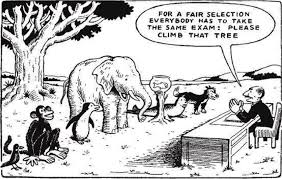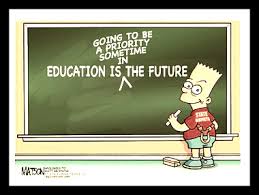Today I walked into on a conversation at work in which Brexit was being compared to trying to be ‘friends with benefits’ after a divorce! Not a bad analogy!
This week on radio 4, ex-Prime Minister, Tony Blair, was being interviewed on his thoughts on Brexit. this is what I understand him to be saying:
1) Yes – it is taking what seems like an age for the MPs to make a decision on Brexit
2) This is because it is extremely complicated to leave the EU after so many years of close relationship and trying to strike a deal and understand all of the details involved is not straightforward – so it’s both right and important that our MPs do what they are elected to do.
3) Theresa May’s deal has been rejected with good reason. It would have been better if she had worked on a few options and worked on a cross party agreement for something more likely to satisfy the varying positions.
4) The options we are left with are as follows:
a) crash out with no deal and trade by WTO rules, but the WTO is in a mess and this will cause some real short term pain for our economy. I don’t know about you, but I know loads of people for whom this would mean very difficult financial positions and would put homes and jobs at severe risk. The economy would recover long-term, but it could take years and years. After all the austerity – can we really handle this?
b) Go for a Norway plus deal, but this leaves us pretty much in the EU, but without the benefits.
c) Go for a Canada plus deal, but the EU are very unlikely to accept this as it is really bad for them, and actually worse for us too. And it leaves us with the Irish border issue.
d) Have a people’s vote (2nd referendum) to check that we still want to do this, now that we know much more than we did when we voted and this time, make the vote binding. this is what happened in Ireland and they realised that they were so much worse off outside of the EU
e) In the mean time, the EU needs to have some time for reflection and understand why the UK voted to leave and why we are seeing such a massive rise of nationalism across Europe right now and think about how we can find a new story for Europe that works for everybody.
Over the last few weeks I’ve taken time to really listen to people who voted for us to leave the EU and there are some really good reasons involved and some I definitely disagree with, but given all of the above, although it is painful, I don’t see how we can do anything except have a further vote. It was amazing to hear the lovely people of Germany reach out to us today to ask us to reconsider. After everything that happened in the last century, the fact that we call each other friends is amazing. Given what we know now, do we really want to Brexit?

 I have waited a while to write this post. It follows on in the series I started on this topic. It seems clear that the Brexit vote was about three key elements: taking control (whatever that means) of our own money, our own laws and our own immigration. I hope to write another blog on those three things another time, but in this time of transition, we must ask ourselves some questions about the kind of future we want to co-create.
I have waited a while to write this post. It follows on in the series I started on this topic. It seems clear that the Brexit vote was about three key elements: taking control (whatever that means) of our own money, our own laws and our own immigration. I hope to write another blog on those three things another time, but in this time of transition, we must ask ourselves some questions about the kind of future we want to co-create. I have to say that when I look at our education system, I am both heartened and dismayed. I am heartened by the amazing quality of teachers across the UK, but I am dismayed by how they are treated as a profession by our mainstream press. I am heartened by the quality of our children and young people and the hopeful possibilities they carry, but I am dismayed by the increased burden of mental health problems many of them suffer. I am heartened that there is so much great thought around education and a shared learning between nations about how to release the potential in each child, but I am dismayed by the lack of application of this learning within the UK. I am heartened that there is an increasing realisation that Ofsted reports can offer only a small snapshot of what goes on in any school and are not a fair representation of all that goes on in any one institution, but I am dismayed by our growing measurement problem. By this I mean that the constant scoring and grading of our children and young people and the comparisons made between our various schools is so detrimental to their development and achievement that we ought to seriously consider the weight it is allowed to carry in our education systems. When our children and young people are some of the least happy in Europe and live in a country where the gap between the richest and poorest, both in terms of economics and educational ‘outcomes’ is one of the worst in Europe, we have to ask ourselves some searching questions.
I have to say that when I look at our education system, I am both heartened and dismayed. I am heartened by the amazing quality of teachers across the UK, but I am dismayed by how they are treated as a profession by our mainstream press. I am heartened by the quality of our children and young people and the hopeful possibilities they carry, but I am dismayed by the increased burden of mental health problems many of them suffer. I am heartened that there is so much great thought around education and a shared learning between nations about how to release the potential in each child, but I am dismayed by the lack of application of this learning within the UK. I am heartened that there is an increasing realisation that Ofsted reports can offer only a small snapshot of what goes on in any school and are not a fair representation of all that goes on in any one institution, but I am dismayed by our growing measurement problem. By this I mean that the constant scoring and grading of our children and young people and the comparisons made between our various schools is so detrimental to their development and achievement that we ought to seriously consider the weight it is allowed to carry in our education systems. When our children and young people are some of the least happy in Europe and live in a country where the gap between the richest and poorest, both in terms of economics and educational ‘outcomes’ is one of the worst in Europe, we have to ask ourselves some searching questions. worthy of love and full of potential. Let’s also recognise that our education system now is one of the few things that has not evolved since the time of the Industrial Revolution and is itself in need of serious renewal and transformation. In Germany, they have managed to elevate practical skills and knowledge to that of intellect. This has given them the ability as a nation to have a much more diverse economy, especially investing in green technologies and manufacturing in a way that cares for the future. In Finland, they have a reverence for the teaching profession that we would do well to adopt here. We need to think of teaching as a sacred gift and it needs to be taken this seriously by those who pursue it as a career. A Head Teacher I know recently told me that she no longer needs teachers who see themselves as having a job, but those who understand that teaching is a vocation and a calling. It is about being willing to parent a generation, not just fill them with knowledge.
worthy of love and full of potential. Let’s also recognise that our education system now is one of the few things that has not evolved since the time of the Industrial Revolution and is itself in need of serious renewal and transformation. In Germany, they have managed to elevate practical skills and knowledge to that of intellect. This has given them the ability as a nation to have a much more diverse economy, especially investing in green technologies and manufacturing in a way that cares for the future. In Finland, they have a reverence for the teaching profession that we would do well to adopt here. We need to think of teaching as a sacred gift and it needs to be taken this seriously by those who pursue it as a career. A Head Teacher I know recently told me that she no longer needs teachers who see themselves as having a job, but those who understand that teaching is a vocation and a calling. It is about being willing to parent a generation, not just fill them with knowledge. not to divide but to build community, not to prepare human beings to be fodder for the economic machine but to ensure the economy serves them to be live a life of hope-filled potential. As with healthcare, we need to de-politicise the education system, hold dear in our hearts those given to teach, caring for their wellbeing and minding how we speak of them. We must partner with them and entrust them with our precious caterpillars as they hold them through the great metamorphosis that is learning before they spread their wings and make their flight to shine like stars in a future sky that the rest of us will never see.
not to divide but to build community, not to prepare human beings to be fodder for the economic machine but to ensure the economy serves them to be live a life of hope-filled potential. As with healthcare, we need to de-politicise the education system, hold dear in our hearts those given to teach, caring for their wellbeing and minding how we speak of them. We must partner with them and entrust them with our precious caterpillars as they hold them through the great metamorphosis that is learning before they spread their wings and make their flight to shine like stars in a future sky that the rest of us will never see.